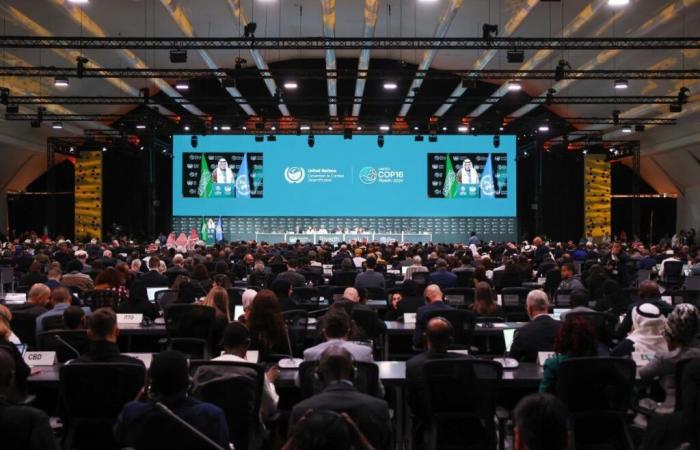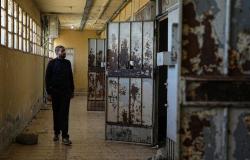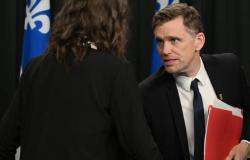Riyadh (© 2024 Afriquininfos) – The United Nations Conference on Combating Desertification (Cop 16) closed on December 14 in Riyadh, Saudi Arabia, without the parties being able to agree on the launch negotiations around a binding protocol relating to drought and an associated Fund, requested by African countries.
After two weeks of intense negotiations, the 200 countries meeting in Riyadh separated without reaching a binding agreement on the fight against drought. However, they committed to placing land restoration and drought resilience at the heart of national policies and international cooperation.
The Great Green Wall (GMV), an Africa-led initiative to restore 100 million hectares of degraded land, also mobilized 11 million euros from the Italian government for landscape restoration in the Sahel and 3.6 million ‘euos of the Austrian government to strengthen the coordination and implementation of the initiative in 22 African countries.
These efforts are recognized as essential to ensuring food security and climate adaptation. Countries have also made significant progress in negotiations for a future global drought regime, which they plan to finalize at COP17 in Mongolia in 2026, the UNCCD Executive Secretariat highlighted in a press release.
More than $12 billion has been pledged to combat desertification, land degradation and drought across the world, particularly in the most vulnerable countries.
Key advances at COP16 include the establishment of an Indigenous Peoples Caucus and a Local Communities Caucus, to ensure their unique perspectives and challenges are fully represented; the continuation of the Science-Policy group of the Convention to strengthen decisions based on scientific data; as well as the mobilization of the private sector as part of the Business4Land initiative.
« Our work does not end when COP16 closes. We must continue to respond to the climate crisis—a call to action to embrace inclusiveness, innovation, and resilience. Young people and indigenous peoples must be at the center of these discussions. Their wisdom, voices and creativity are essential to building a sustainable future that brings hope for future generations “, underlined the Deputy Secretary-General of the United Nations, Amina J. Mohammed, in a statement.
In his closing remarks, COP16 President Abdulrahman Alfadley, Saudi Minister of Environment, Water and Agriculture, said the meeting marked a turning point in raising international awareness of the emergency of accelerate land restoration and resilience to drought. “We hope that the results of this session will mark a significant turning point in strengthening efforts to preserve land, reduce land degradation, develop capacities to cope with drought and contribute to the well-being of communities around the world. “, he said.
During the closing plenary of COP16, UNCCD Executive Secretary Ibrahim Thiaw said: “As we have discussed and observed, the solutions are within our reach. The actions we took today will shape not only the future of our planet, but also the lives, livelihoods and opportunities of those who depend on it.”
2.6 trillion dollars of investments needed by 2030
He also highlighted a significant shift in the global approach to land and drought issues, highlighting interconnected challenges with broader global issues such as climate change, biodiversity loss, food security, forced migration and global stability.
During the conference, participants learned that the UNCCD estimates that at least $2.6 trillion in investments are needed by 2030 to restore more than a billion hectares of degraded land and build resilience to drought. This represents a daily investment of $1 billion by 2030 to achieve global land restoration goals and combat desertification and drought.
New commitments were announced for large-scale land restoration and drought preparedness projects, such as the Riyadh Global Drought Resilience Partnership, which attracted $12.15 billion to support 80 of the most vulnerable countries in the world in building their resilience to drought, including a $10 billion commitment from the Arab Coordination Group.
Africainfos






